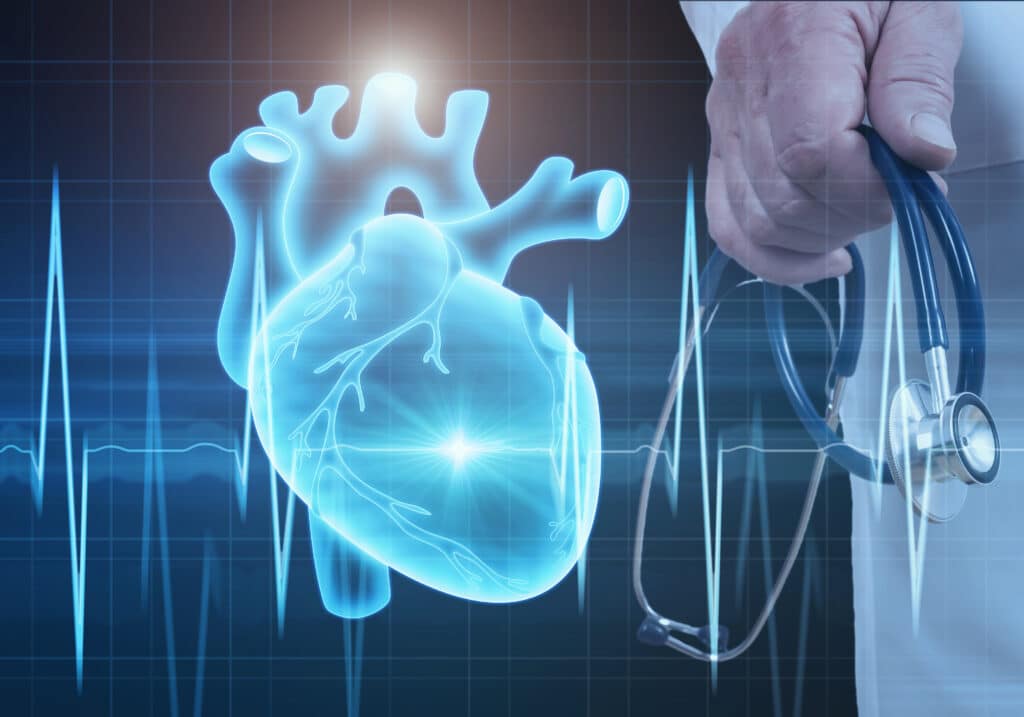Avoid heart disease with Cardiology care: A proactive approach
Avoid heart disease with Cardiology care: A proactive approach
Blog Article
Recognizing the Importance of Cardiology in Modern Medical Care Solutions
Cardiology plays a critical role in modern health care, especially as cardiovascular disease remains to be the leading source of mortality worldwide. Breakthroughs in diagnostics and treatment have changed patient care, making it possible for earlier treatments and boosted end results. The shift towards preventive cardiology empowers individuals to handle their wellness proactively. As modern technology remains to progress, the combination of innovative services may further redefine cardiology's influence on public wellness, triggering a better examination of arising fads and their effects.
The Frequency of Heart Problem and Its Effect On Public Health
Although heart disease continues to be the leading reason of fatality around the world, its effect prolongs much past individual people to influence public health and wellness systems and economic situations. The high prevalence of cardiovascular disease puts a considerable strain on health care resources, requiring boosted funding for therapy, rehabilitation, and avoidance programs. Public health campaigns need to address danger factors such as excessive weight, cigarette smoking, and sedentary way of lives, which add significantly to the climbing occurrence of heart conditions.Moreover, the economic worry connected with cardiovascular disease is immense, including not only direct clinical expenses however likewise indirect expenditures connected to lost productivity and premature death. Areas face difficulties in taking care of these prices, frequently bring about differences in healthcare gain access to and results. As the populace ages and lifestyle-related threats proceed to escalate, the seriousness for efficient cardiology treatments comes to be extremely important. Consequently, dealing with cardiovascular disease is not just a matter of individual health however likewise an important public wellness top priority.
Advances in Heart Diagnostics and Imaging Techniques
Current improvements in heart diagnostics and imaging methods have transformed the field of cardiology, enhancing the ability to spot and monitor cardiovascular disease. Techniques such as heart MRI, CT angiography, and echocardiography have actually ended up being increasingly innovative, giving in-depth pictures of cardiac frameworks and features. These modalities enable the very early identification of conditions like coronary artery condition, heart failure, and valvular disorders.Moreover, innovations in non-invasive diagnostics, such as wearable modern technology and remote monitoring devices, have actually equipped patients and doctor. These tools facilitate real-time monitoring of heart rhythms and other crucial indications, leading to prompt interventions. In addition, expert system is being incorporated into imaging evaluation, improving precision and efficiency in medical diagnosis.
Advancements in Treatment Choices for Heart Issues
Recent innovations in cardiology have brought about considerable innovations in therapy alternatives for heart conditions. These consist of advanced medical strategies that improve step-by-step results and arising medicines that offer new methods for therapy. As the area develops, these technologies play an important duty in improving individual treatment and outcomes.
Advanced Surgical Techniques
Technologies in surgical techniques have changed the landscape of cardiology, supplying new expect individuals with heart disease. Minimally invasive treatments, such as catheter-based treatments, have actually significantly minimized recuperation times and medical facility keeps. Techniques like robotic-assisted surgical treatment improve accuracy, permitting surgeons to navigate complex anatomical frameworks with better precision. Innovations in imaging technology facilitate real-time visualization during treatments, improving outcomes. Transcatheter aortic valve replacement (TAVR) exemplifies an advancement in treating aortic stenosis, enabling shutoff substitute without open-heart surgery. In addition, hybrid strategies that incorporate medical and catheter-based techniques offer tailored services for various heart concerns. These innovative surgical techniques not just enhance individual safety but additionally increase treatment options, emphasizing the critical function of development in modern cardiology techniques.
Arising Treatments and medicines
As the landscape of cardiology continues to evolve, arising medicines and therapies play a pivotal duty in improving treatment alternatives for heart disease. Innovations such as unique anticoagulants and advanced lipid-lowering representatives have changed the administration of heart diseases, substantially minimizing client morbidity and death. Furthermore, the development of gene treatments and regenerative medication offers encouraging avenues for dealing with conditions formerly deemed incurable. Clinical tests are continually exposing the efficacy of these therapies, pressing the boundaries of traditional treatments. Moreover, the combination of electronic health innovations facilitates individualized medication, permitting customized therapy plans based on hereditary and way of living elements. Collectively, these innovations underscore the dynamic nature of cardiology, enhancing person outcomes and redefining standards of care in contemporary medical care.
The Duty of Preventive Cardiology in Patient Care
Precautionary cardiology plays an important function in individual treatment by concentrating on the recognition of threat variables that add to heart problem. With way of life adjustment methods and very early discovery methods, doctor can efficiently minimize the incidence of cardiovascular events - Cardiology. This aggressive strategy not just boosts patient outcomes but also promotes lasting wellness
Danger Aspect Identification
While cardiovascular diseases continue to be a leading reason of morbidity and death worldwide, efficient risk element identification works as a keystone of preventative cardiology. Determining risk factors such as high blood pressure, diabetes, hyperlipidemia, and family background is essential for very early intervention. Healthcare professionals utilize numerous screening approaches to examine these elements, permitting for tailored preventative procedures. Additionally, recognizing a client's way of living choices, such as smoking cigarettes and physical lack of exercise, better notifies threat evaluations. This thorough analysis enables medical professionals to develop personalized treatment plans focused on mitigating threats. By prioritizing danger variable identification, medical care systems can improve patient results and lower the overall problem of cardio diseases, eventually adding to enhanced public wellness strategies and resource appropriation.
Lifestyle Adjustment Methods
A plethora of studies highlights the vital duty of lifestyle adjustment methods in lowering heart disease threat. These methods incorporate nutritional changes, raised physical task, smoking cigarettes cessation, and weight management. By embracing a heart-healthy diet regimen rich in fruits, veggies, entire grains, and lean proteins, people can decrease cholesterol degrees and high blood pressure. Normal exercise strengthens the heart and boosts overall cardio health and wellness. Additionally, giving up cigarette smoking greatly minimizes the danger of heart problem and boosts recovery prices for those with status quo. Weight management better adds to cardio health and wellness by minimizing various other threat elements such as diabetic issues and hypertension. Implementing these way of living changes not only promotes individual wellness however additionally works as a cornerstone of precautionary cardiology in individual treatment.
Very Early Detection Strategies
Way of living alterations significantly add to minimizing cardiovascular disease risks, but they are most reliable when coupled with early detection methods. Preventative cardiology emphasizes the significance of recognizing prospective heart issues before they rise right into major problems. Techniques such as blood pressure tracking, cholesterol testing, and advanced imaging modern technologies like echocardiograms play essential duties in assessing cardiovascular wellness. Biomarkers and hereditary testing likewise improve the accuracy of very early detection, enabling customized precautionary strategies. Normal cardiac risk evaluations empower health care providers to step in proactively, possibly avoiding cardiovascular disease and strokes (Cardiologist near me). By incorporating these very early detection methods right into routine care, patients can benefit from prompt way of life treatments and targeted treatments, inevitably enhancing and enhancing end results high quality of life
Integrating Innovation Into Cardiology Practices
As developments in technology proceed to improve various fields, the assimilation of cutting-edge tools and systems into cardiology techniques has actually become vital for enhancing client care and results. Telemedicine systems permit cardiologists to keep an eye on clients from another location, boosting access to care while decreasing the problem on health care centers. Wearable gadgets, such as smartwatches, make it possible for continual their website heart rate surveillance, notifying both doctors and clients to potential issues in real-time. Furthermore, artificial knowledge (AI) is being made use of to evaluate huge quantities of cardiac information, helping in early medical diagnosis and customized treatment plans. Advanced imaging techniques, consisting of 3D echocardiography, boost visualization of heart frameworks, leading to more precise interventions. Digital health and wellness documents (EHRs) enhance client details management, making certain that cardiologists have instant access to crucial data. With each other, these technical advancements are changing cardiology, promoting proactive monitoring and enhanced health and wellness outcomes for individuals with cardiovascular problems.
The Relevance of Client Education and Interaction
Person education and engagement play a crucial function in the monitoring of cardio health. By outfitting patients with knowledge concerning their problems, treatment choices, and lifestyle modifications, doctor equip individuals to take an energetic duty in their treatment. This proactive approach can bring about improved adherence to suggested medicines, nutritional changes, and exercise programs, ultimately minimizing the danger of complications.Engagement also promotes a solid patient-provider partnership, encouraging open communication and count on. When clients really feel notified and involved, they are extra likely to voice worries and ask concerns, which can result in much better professional end results. Furthermore, academic resources, such as workshops or electronic platforms, can enhance understanding and advertise self-management methods. On the whole, focusing on person education and learning and interaction is vital for enhancing cardio health and wellness, enhancing top quality of life, and decreasing healthcare costs connected with cardiovascular illness.
Future Fads in Cardiology and Their Prospective Influence

Frequently Asked Concerns
What Way Of Life Adjustments Can Decrease Heart Problem Danger?
The existing question addresses way of life adjustments that can substantially lower cardiovascular disease danger. Cardiology. Adopting a balanced diet, engaging in normal exercise, keeping a healthy and balanced weight, handling tension, and avoiding tobacco can especially improve cardio health
Exactly How Can I Identify Very Early Indicators of Heart Problems?
Acknowledging very early indications of heart troubles involves monitoring signs and symptoms such as breast pain, shortness of breath, tiredness, and uneven heartbeat. Timely awareness of these signs can prompt necessary clinical evaluation and treatment for better results.
What Are the Differences In Between Cardiologists and Heart Surgeons?
The differences in between cardiologists and heart cosmetic surgeons hinge on their functions; cardiologists mostly detect and manage heart disease via non-invasive approaches, while heart surgeons carry out surgeries to deal with structural heart issues. Each plays an important, distinctive duty.

How Often Should I Obtain My Heart Health And Wellness Checked?
The frequency of heart health checks varies based upon individual threat variables. Generally, grownups need to undertake assessments every one to 2 years, while those with status quo may call for even more constant assessments as advised by healthcare professionals.
What Function Does Genes Play in Heart Disease Risk?
Genes greatly affects heart condition danger, with familial patterns showing acquired problems. Certain genes can predispose people to hypertension, cholesterol issues, and other cardio issues, highlighting the significance of genetic testing in examining heart wellness. Heart disease stays the leading cause of death worldwide, its influence extends much past private people to impact public health systems and economic situations. Public wellness initiatives need to deal with danger variables such as obesity, cigarette smoking, and inactive way of lives, which add significantly to the increasing occurrence of heart conditions.Moreover, the economic burden connected with heart illness is immense, including not just straight clinical costs however also indirect expenditures associated to lost efficiency and premature death. Preventive cardiology plays a necessary duty in client treatment by concentrating on the recognition of danger factors that add to heart illness. Fabricated knowledge (AI) and machine learning are boosting diagnostics and person surveillance, allowing early detection of heart diseases. The distinctions in between cardiologists review and cardiac specialists lie in their functions; cardiologists largely her response manage and diagnose heart conditions via non-invasive approaches, while cardiac cosmetic surgeons carry out surgical treatments to remedy architectural heart problems.
Report this page